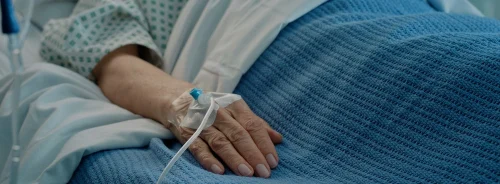ICU Management & Practice, ICU Volume 5 - Issue 3 - Autumn 2005
Author
Helicia Herman
Editor European Affairs
Correspondence
Parliament Committee Issues Report on
Services Directive
In Early 2004 the European Commission tabled a draft directive for the liberalisation of services within the EU, designed for example, to enable doctors or nurses to work anywhere in Europe. Many in the medical profession, however, feared that this liberalisation would undermine national regulators´ ability to ensure that EU staff coming to work in their health services were sufficiently competent.
European Parliament Member Evelyne Gebhardt, the rapporteur for the Internal Market Committee, Parliament’s leading committee on the draft services, completed her consideration of the proposed directive in May, and proposed a series of major amendments to the text. For example, she calls for health to be excluded from the scope of the proposal given that its inclusion would bring the directive into conflict with the manner in which competences are divided between the Union and member states.
Mrs. Gebhardt also proposes replacing the country of origin principle with the principle of mutual recognition, based on the concept of ‘equivalence’. Under this principle and in accordance with the established case law of the European Court of Justice, the conditions laid down in the legislation of the country of destination may not duplicate equivalent conditions which have already been satisfied in the country of origin. Thus qualifications or experience satisfied under the regulations of one country must also be recognized in another.
The draft report will form the basis for further discussions in the European Parliament.
Medical Devices Directives Under Review
Regulations on medicinal products and medical devices are currently contained in three EU directives: the medicinal products, active implantable medical devices and in-vitro diagnostics directives. The Commission has decided, on the basis of technical differences between the three directives to make a series of changes to the texts. According to the EU executive, these will deliver improvements in the following areas:
• clinical evaluation through clarification of the requirements;
• post-market surveillance to increase transparency for the general public;
• consistency between the medical devices and the active implantable medical devices directives;
• the decision-making process by allowing binding decisions in the event of conflicting national interpretations on whether a product is a medical device.
Around 8,000 types of medical product are currently available on the market. They include items such as lifesaving implants, advanced machines for screening and diagnosing health conditions and diseases, and instruments for performing minimally invasive surgery. Taking information from a recently concluded consultation process into consideration, the Commission is now working on a legislative proposal.
Divisions on Working Time Directive Remain
Unresolved
At the end of 2004, the Commission proposed changes to the existing EU Working Time Directive, which would affect
• the length of the reference period for calculating the maximum weekly number of hours worked;
• the definition of working time (introducing a new definition of “on-call duty” and “inactive on-call duty”);
• the conditions under which an exemption from the maximum working week can be exercised. In June a group of member states, led by the United Kingdom, refused to approve the Commission proposal to remove, from 2012 onwards, the existing opt-out clause under which member states may choose not to adopt the provisions on maximum working hours. However, Ministers have not yet forced the issue to a vote in the Council. The European Parliament had already voted on the proposal in May. Among the key decisions were:
• All time spent on-call should be counted as working time. Any inactive on-call duty should therefore be taken into account when calculating the average maximum working week in line with the law or contracts of employment.
• Rest periods to compensate for extra hours worked should be taken as soon as possible after the extra timeworked.
• The reference period over which the average maximum working week is calculated should be extended by law or employment contract to 12 months (from the current 17 weeks).
MEPs also rejected the suggestion that employees and employers could enter into contracts to agree an extension of the maximum working week beyond the currently agreed 48 hours. In other words, they voted against an opt-out from the maximum working week. Furthermore, they want countries, which already use this opt-out clause to phase it out over a 36 month transition period. The Commission is now seeking a compromise solution.





